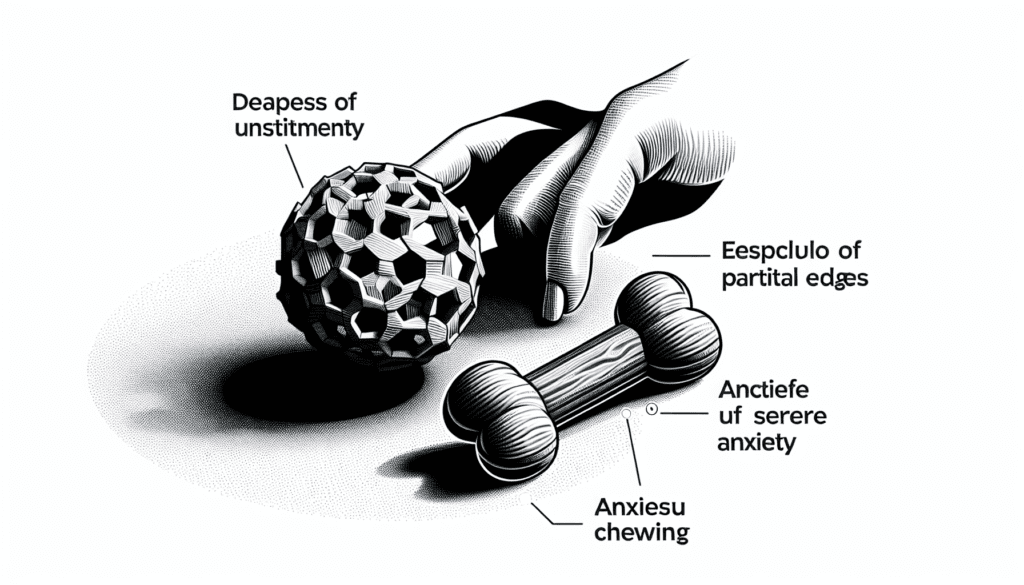If you’re a passionate dog owner who has noticed signs of severe anxiety in your furry friend, you may be wondering if there are any specific medications that can help ease their distress. Dealing with a dog who is constantly on edge can be heart-wrenching, but rest assured, there are several medications available that can aid in alleviating their anxiety. From selective serotonin reuptake inhibitors (SSRIs) to benzodiazepines, veterinary professionals have a range of options to help your pup find some peace of mind. So, if you’re searching for ways to support your anxious furry companion, keep reading to discover the medications that may be prescribed for severe dog anxiety. Yes, there are specific medications that can be prescribed for severe dog anxiety. These medications can help to calm your dog and reduce their anxiety symptoms. In this article, we will explore both prescription and over-the-counter medications that are commonly used to treat severe dog anxiety. It’s important to note that these medications should only be used under the guidance and supervision of a veterinarian.

Prescription Medications
Prescription medications are typically stronger and more targeted than over-the-counter options. They require a prescription from a veterinarian and should only be used as directed. The following medications are commonly prescribed for severe dog anxiety:
Fluoxetine
Fluoxetine is a selective serotonin reuptake inhibitor (SSRI) that is commonly used to treat anxiety and depression in both humans and dogs. It works by increasing the levels of serotonin in the brain, which helps to regulate mood and reduce anxiety.
Some common side effects of fluoxetine in dogs include decreased appetite, lethargy, and gastrointestinal upset. The dosage of fluoxetine will vary depending on the size and weight of your dog, so it’s important to follow your veterinarian’s instructions carefully.
Clomipramine
Clomipramine is a tricyclic antidepressant that is often prescribed to dogs with severe anxiety. It works by increasing the levels of serotonin in the brain, similar to fluoxetine. Clomipramine is especially effective at treating separation anxiety in dogs.
Common side effects of clomipramine in dogs include dry mouth, increased thirst, and sedation. The dosage of clomipramine will be determined by your veterinarian based on your dog’s needs.
Alprazolam
Alprazolam, also known as Xanax, is a benzodiazepine that is sometimes prescribed to dogs with severe anxiety. It works by increasing the activity of a neurotransmitter called gamma-aminobutyric acid (GABA), which has a calming effect on the brain.
Side effects of alprazolam in dogs can include sedation, confusion, and appetite changes. The dosage of alprazolam will vary depending on your dog’s size and needs, so it’s important to follow your veterinarian’s instructions closely.

Diazepam
Diazepam, also known as Valium, is a benzodiazepine that is occasionally prescribed to dogs with severe anxiety. It has a similar mechanism of action to alprazolam and works by increasing GABA activity in the brain.
Common side effects of diazepam in dogs include sedation, decreased coordination, and changes in appetite. The dosage of diazepam will be determined by your veterinarian based on your dog’s specific needs.
Over-the-Counter Medications
In addition to prescription medications, there are also some over-the-counter options that can help to ease your dog’s anxiety. These medications are generally milder and have fewer potential side effects.
Melatonin
Melatonin is a hormone that is naturally produced by the body and helps to regulate sleep-wake cycles. It can also be used to help calm dogs with anxiety. Melatonin is available in tablet form and can be found at most drug stores or health food stores.
The mechanism of action of melatonin in dogs is not fully understood, but it is believed to work by affecting certain receptors in the brain. It is generally considered safe for dogs, but some potential side effects can include drowsiness and changes in appetite.
The appropriate dosage of melatonin for your dog will depend on their size, so it’s important to consult with your veterinarian to determine the correct dosage.
Chamomile
Chamomile is an herb that is known for its calming properties and can be used to help reduce anxiety in dogs. It is available in various forms, including tea or capsules, and can be found at most grocery stores or health food stores.
The exact mechanism of action of chamomile in dogs is unclear, but it is thought to have a mild sedative effect. Chamomile is generally safe for dogs, but some dogs may have an allergic reaction. It’s important to start with a small dose and monitor your dog for any adverse effects.
The dosage of chamomile will vary depending on your dog’s size and needs, so it’s best to consult with your veterinarian to determine the appropriate dosage.
Valerian Root
Valerian root is an herb that has been used for centuries to help promote relaxation and reduce anxiety. It is available in various forms, including capsules or tinctures, and can be found at most health food stores.
The exact mechanism of action of valerian root in dogs is not fully understood, but it is believed to work by increasing the levels of GABA in the brain. It is generally considered safe for dogs, but some potential side effects can include mild sedation and digestive upset.
The appropriate dosage of valerian root will depend on your dog’s size and needs, so it’s important to consult with your veterinarian for the correct dosage.
In conclusion, there are various medications that can be prescribed or used over-the-counter to help manage severe dog anxiety. Prescription medications such as fluoxetine, clomipramine, alprazolam, and diazepam can provide targeted and effective relief for your dog’s anxiety symptoms. Over-the-counter options like melatonin, chamomile, and valerian root can also be used to help calm your dog, but it’s important to consult with your veterinarian to determine the appropriate dosage and ensure their safety. Remember, always seek advice from a professional before starting any medication for your dog’s anxiety. Your veterinarian will be able to assess your dog’s specific needs and help you choose the best course of treatment.

